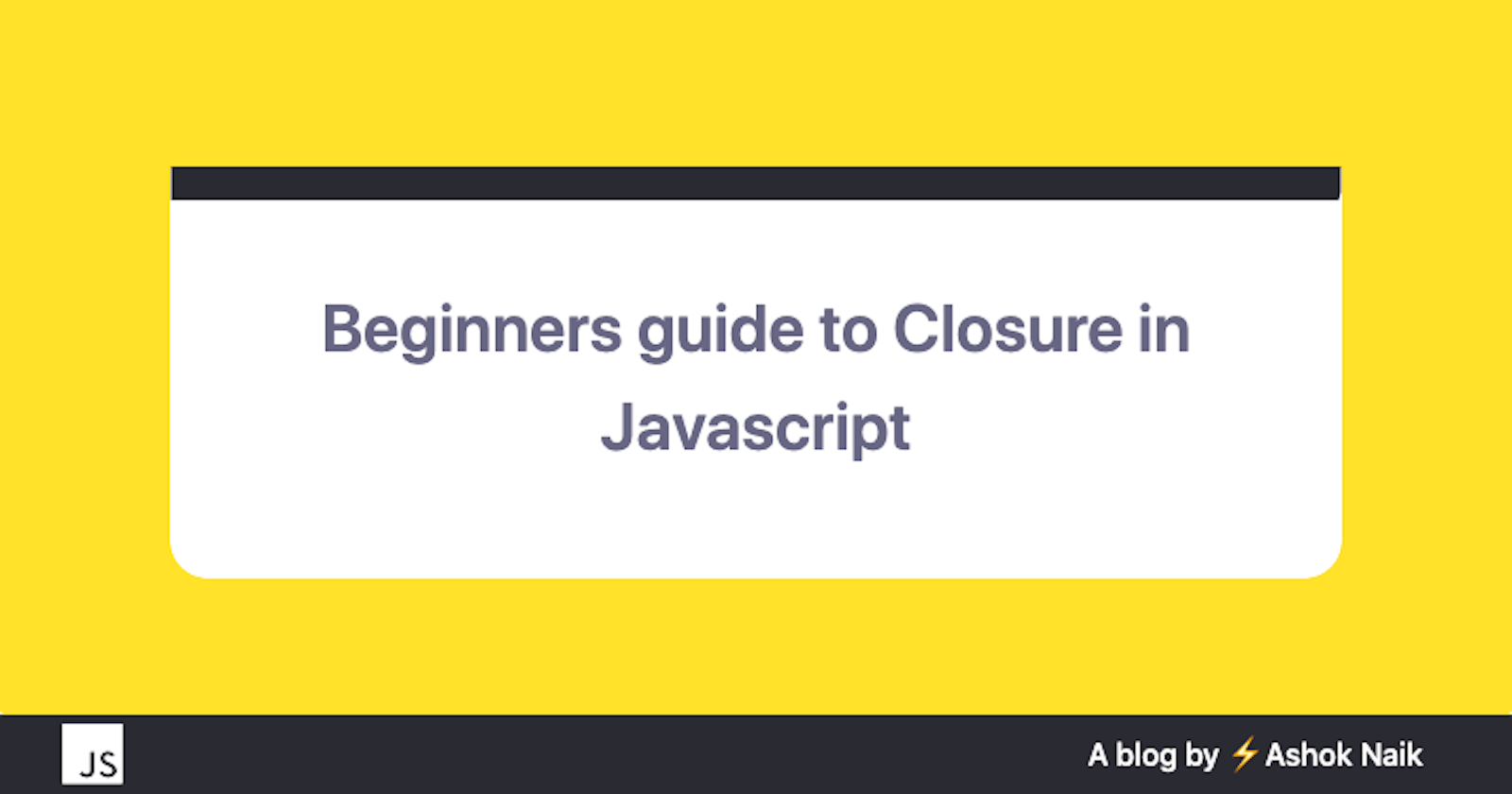Closures are a fundamental concept in Javascript which is quite a confusing concept to understand. What are closures? is a mandatory question asked in Javascript technical interviews.
So in this article, I will help you understand Closures.
Closure is a function in which has access to its outer function scope even after the outer function is executed.
Let's take an example
function outerFunction() {
let outerVariable = "Hello"; // variable declared in outer function scope
return function closureFunction() {
let innerVariable = "World";
console.log(outerVariable + " " + innerVariable); // variable accessed in the inner function
}
}
let foo = outerFunction();
foo(); // Can you guess the output ?
The output of the code is: "Hello World"
In the above example, the function outerFunction has a variable called outerVariable which is accessible to the closureFunction even after the function has been returned ( let foo = outerFunction(); ) . Here the inner function (closureFunction) can access the variables defined in its own scope, the outer function’s scope.
All you need to know about closures is that when you have a function declared inside another function, the inner function has access to variables and the scope of the outer function, even if the outer function finishes execution.
